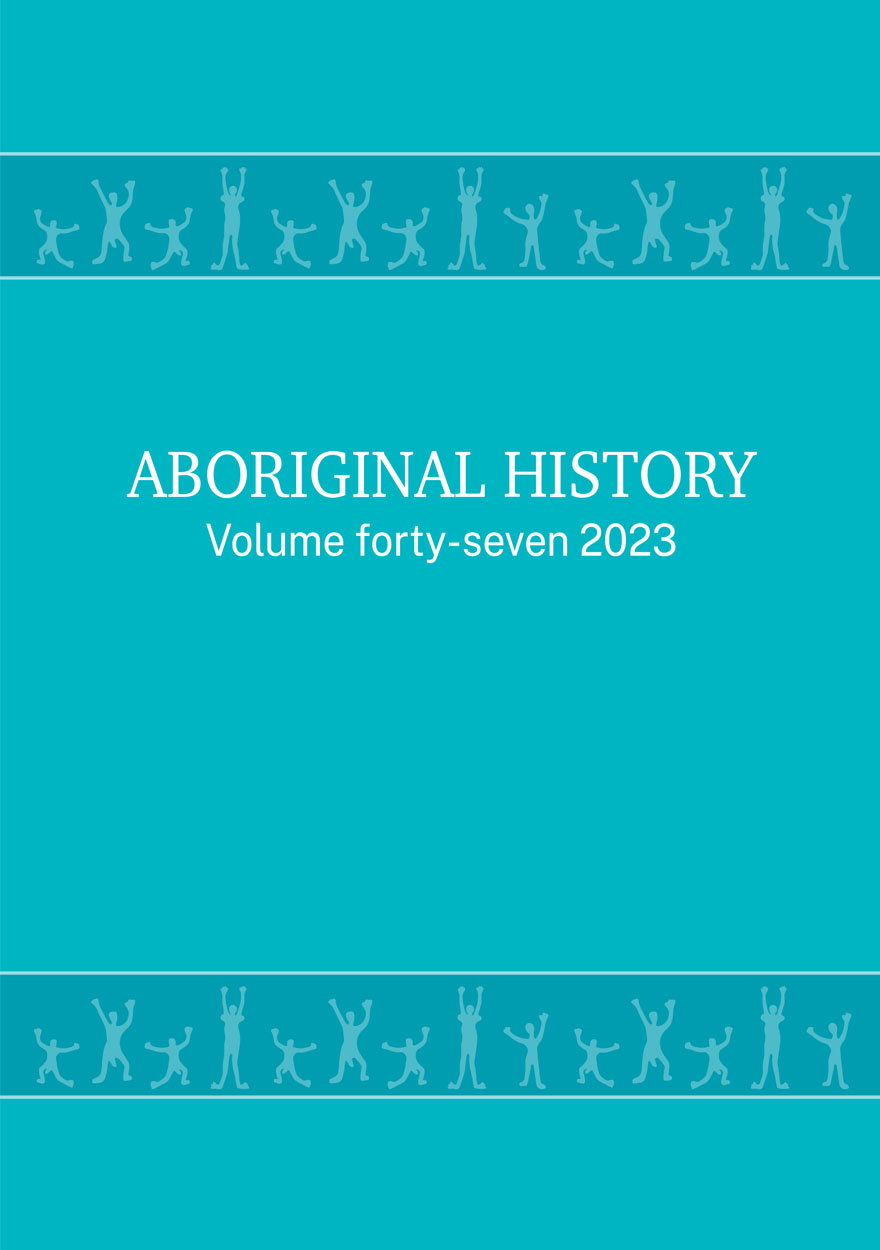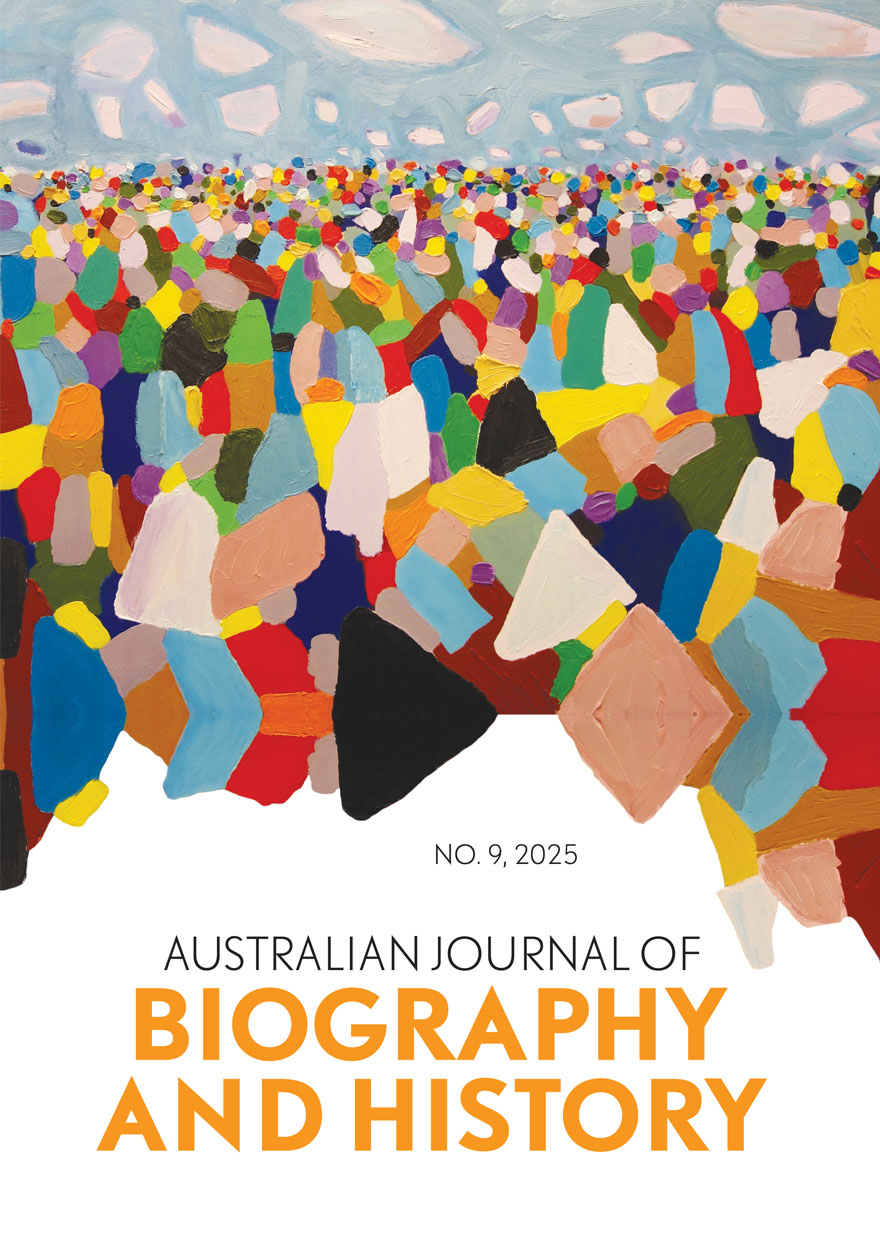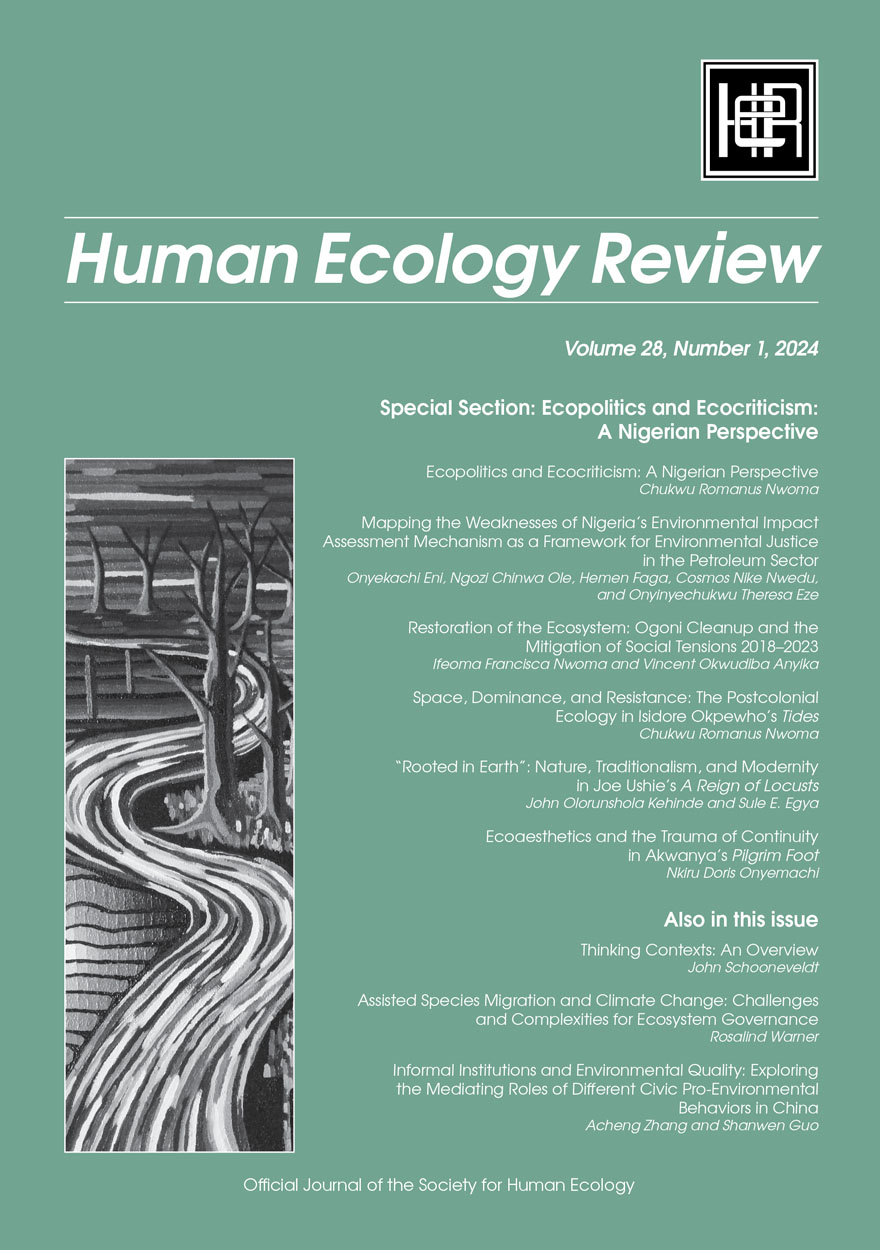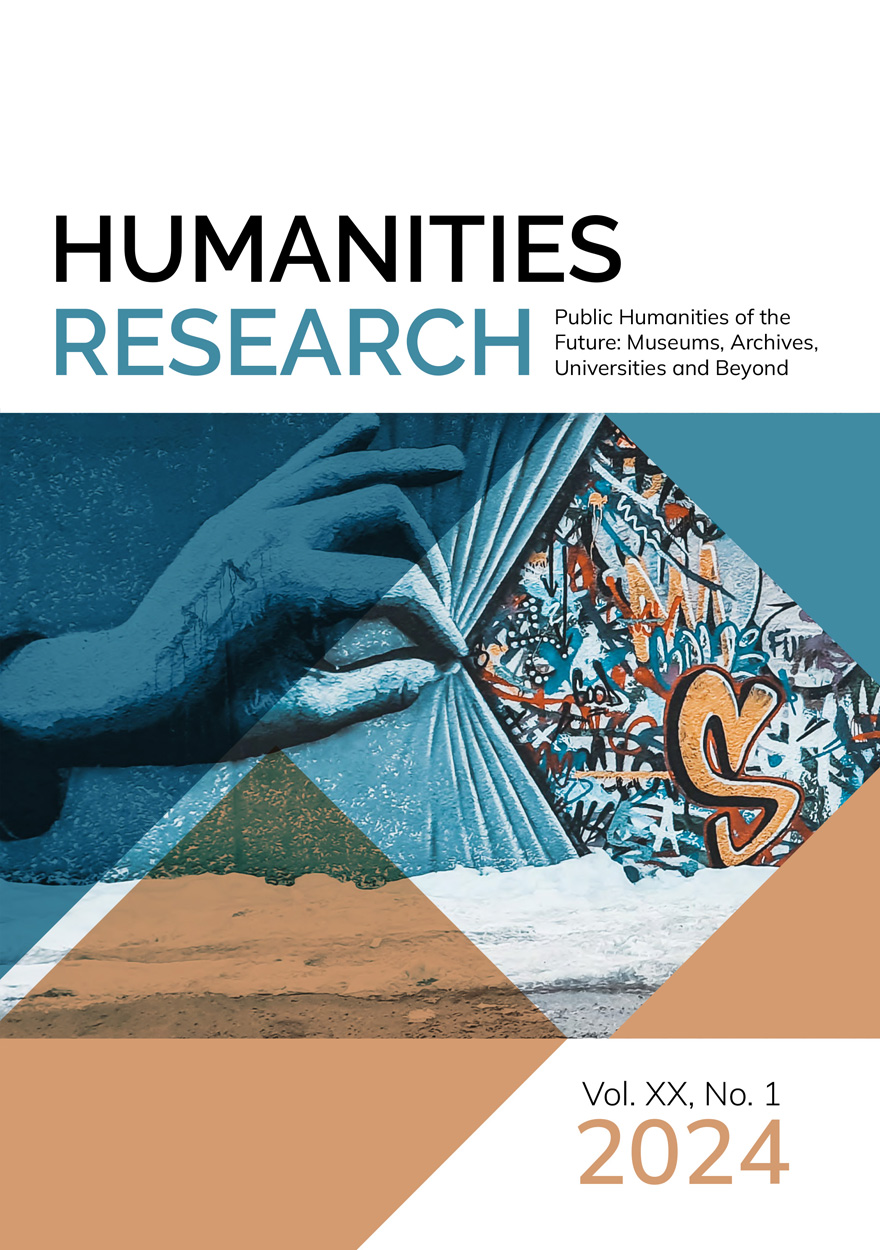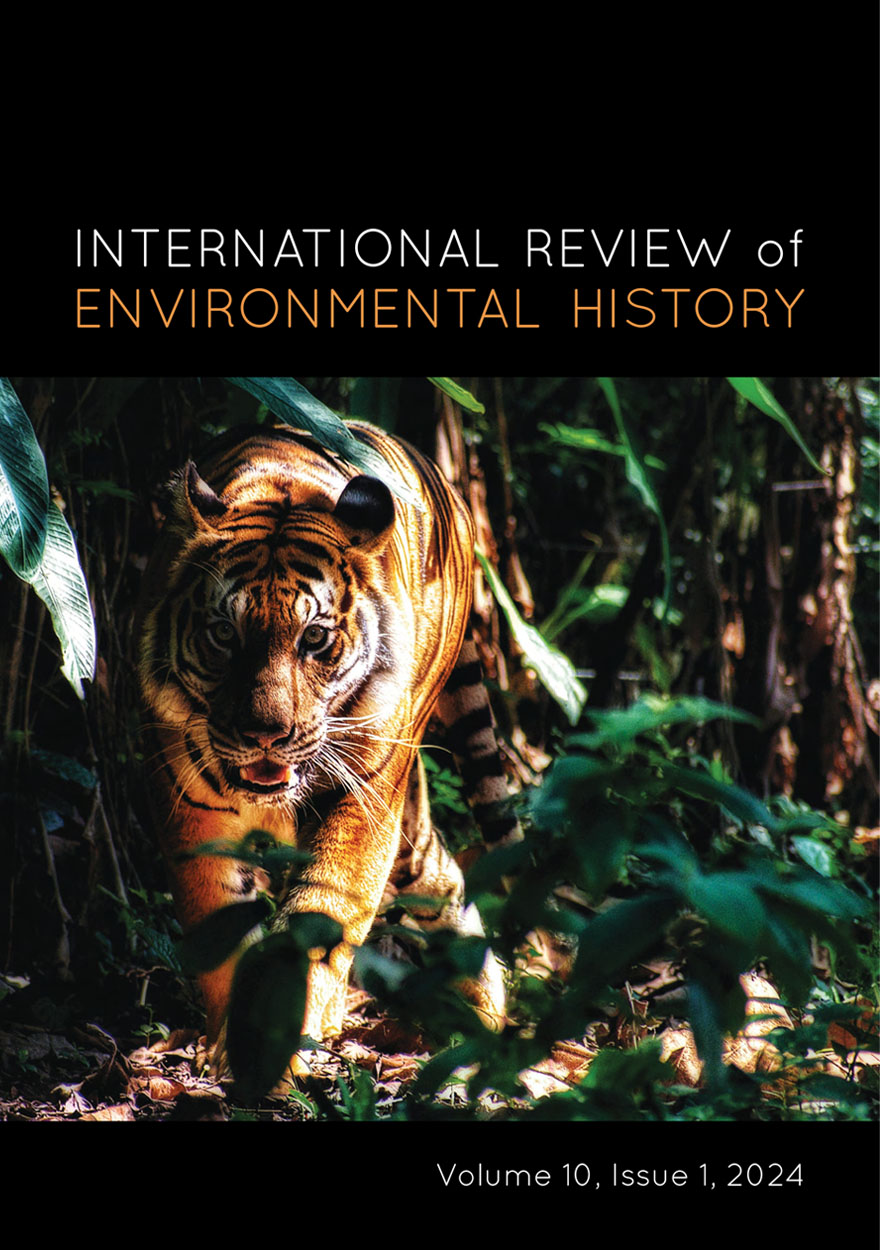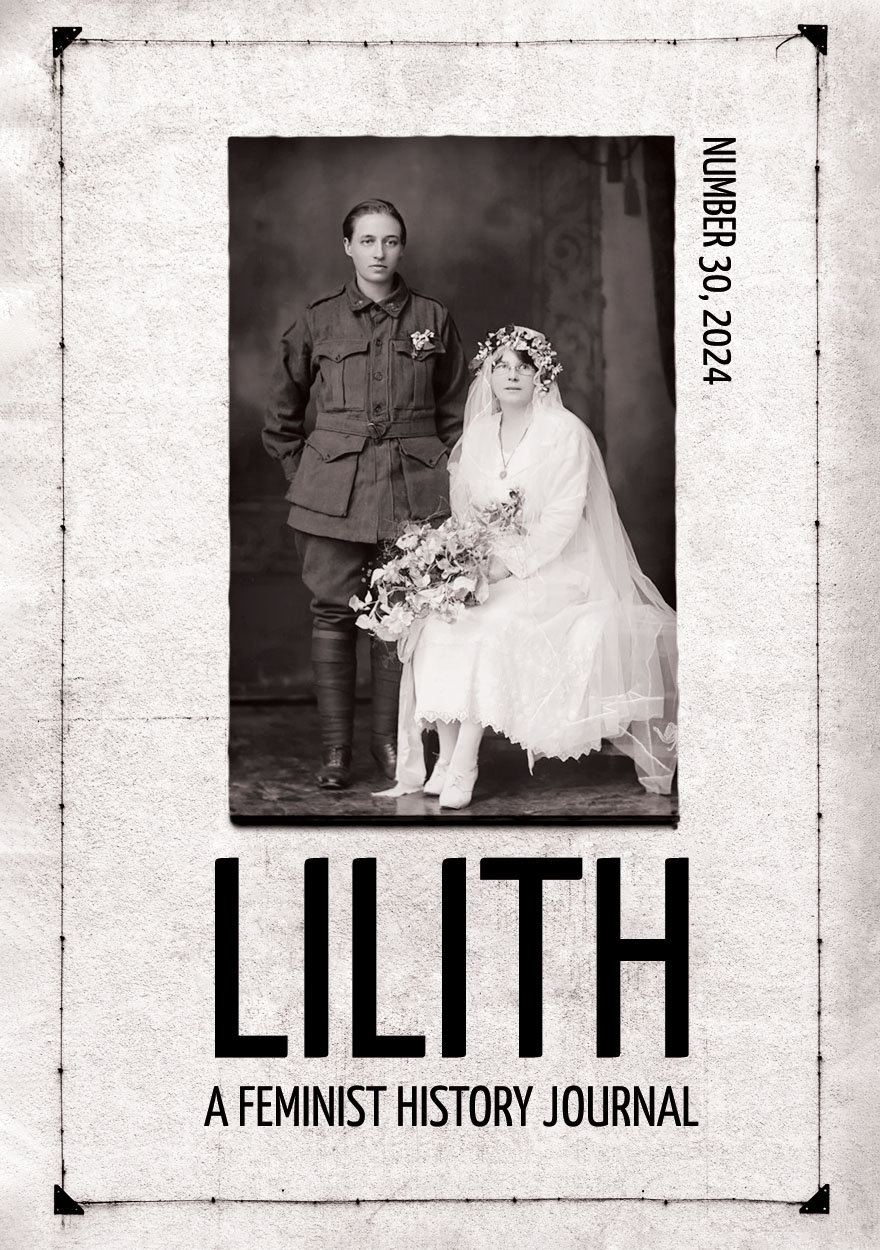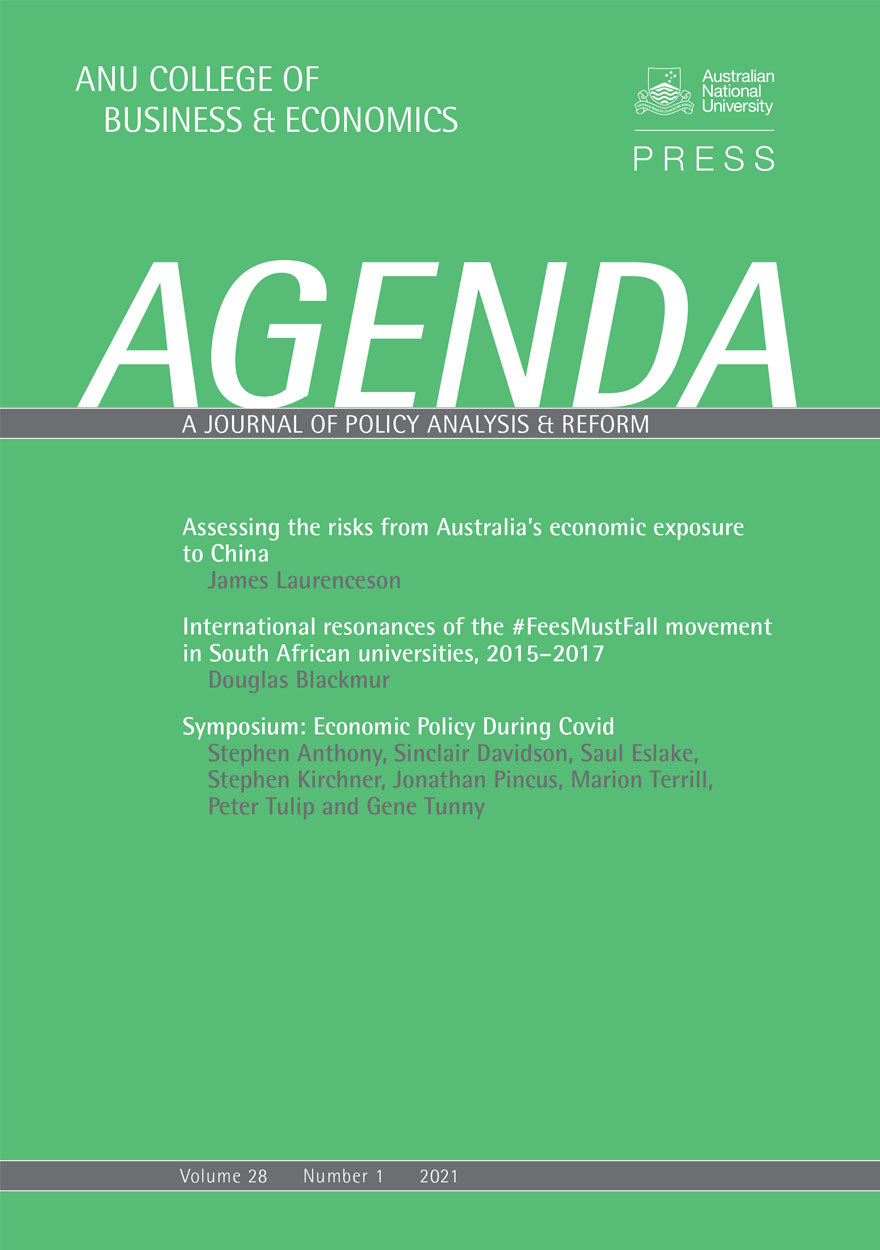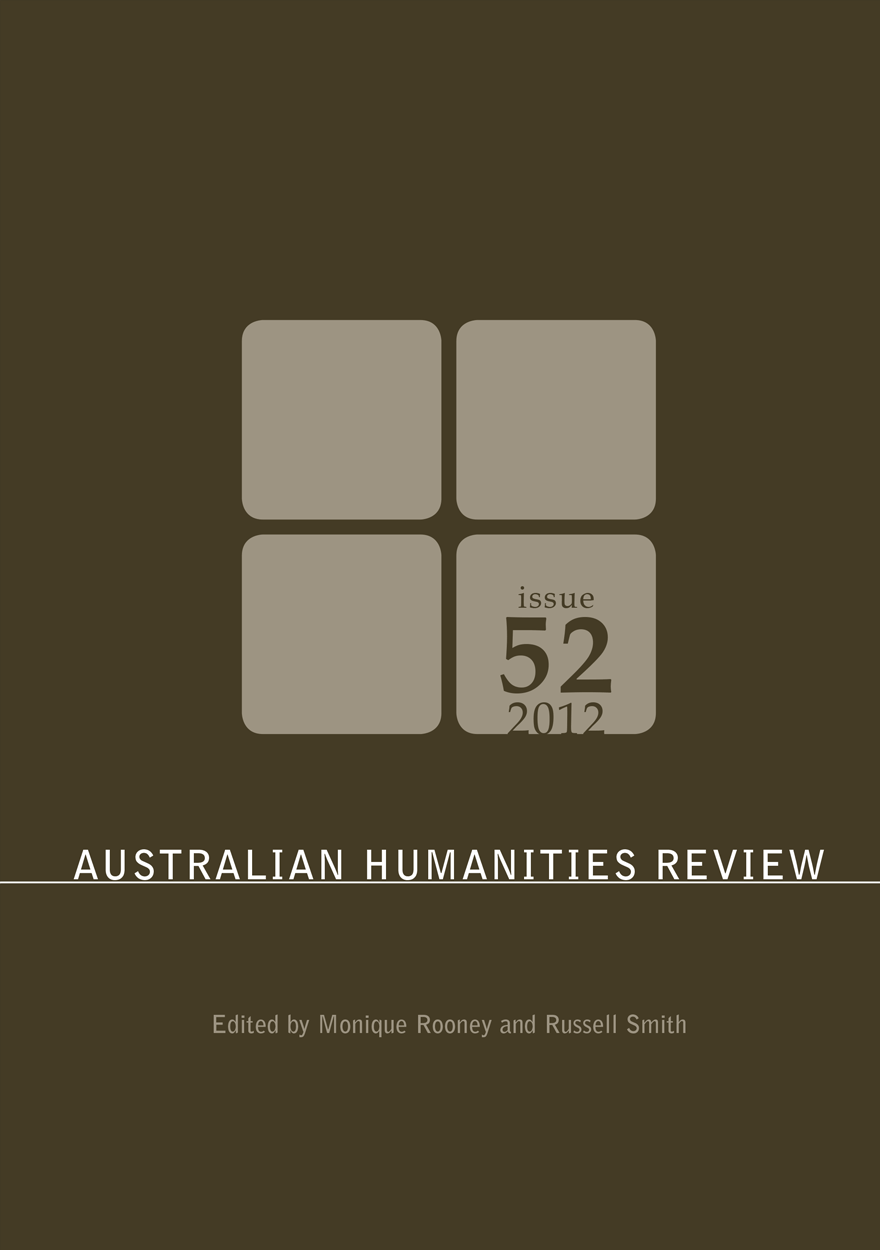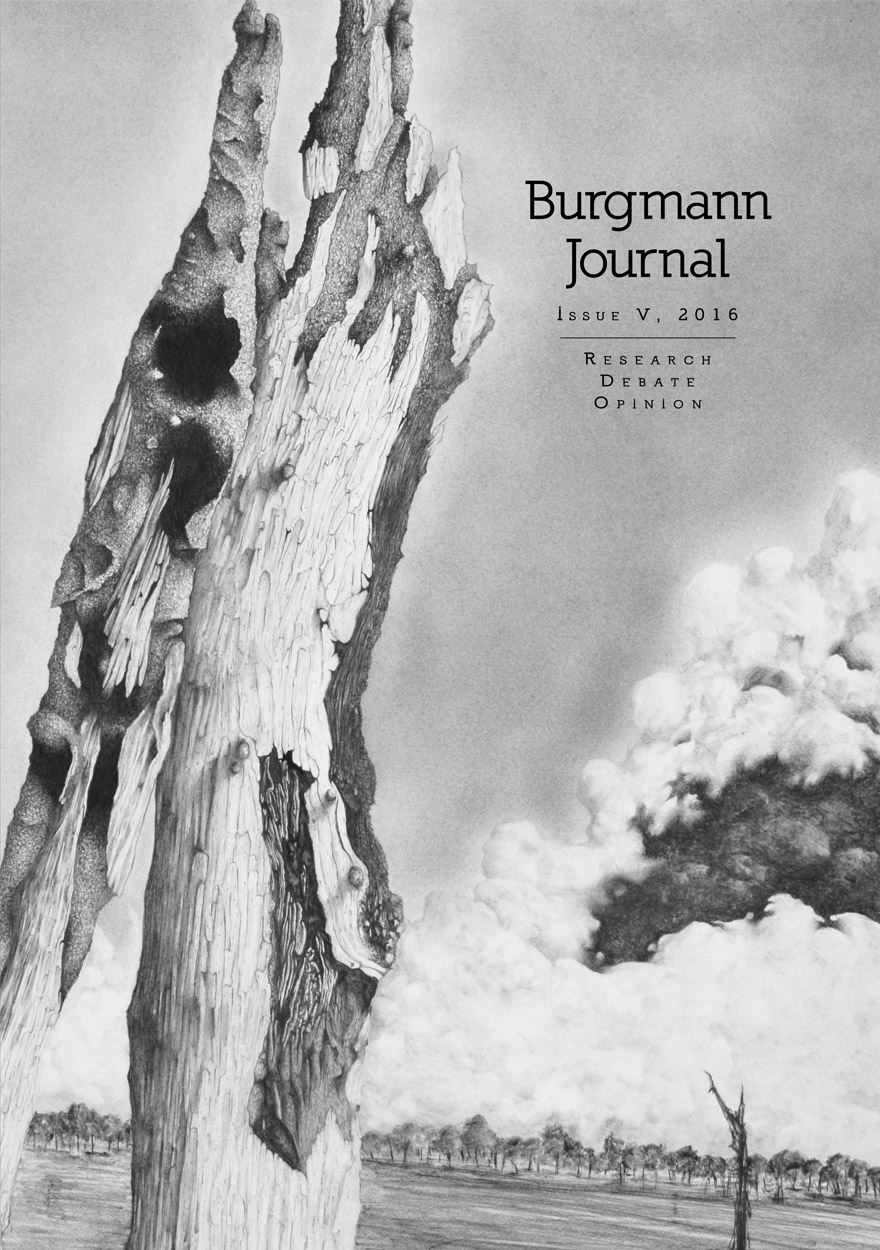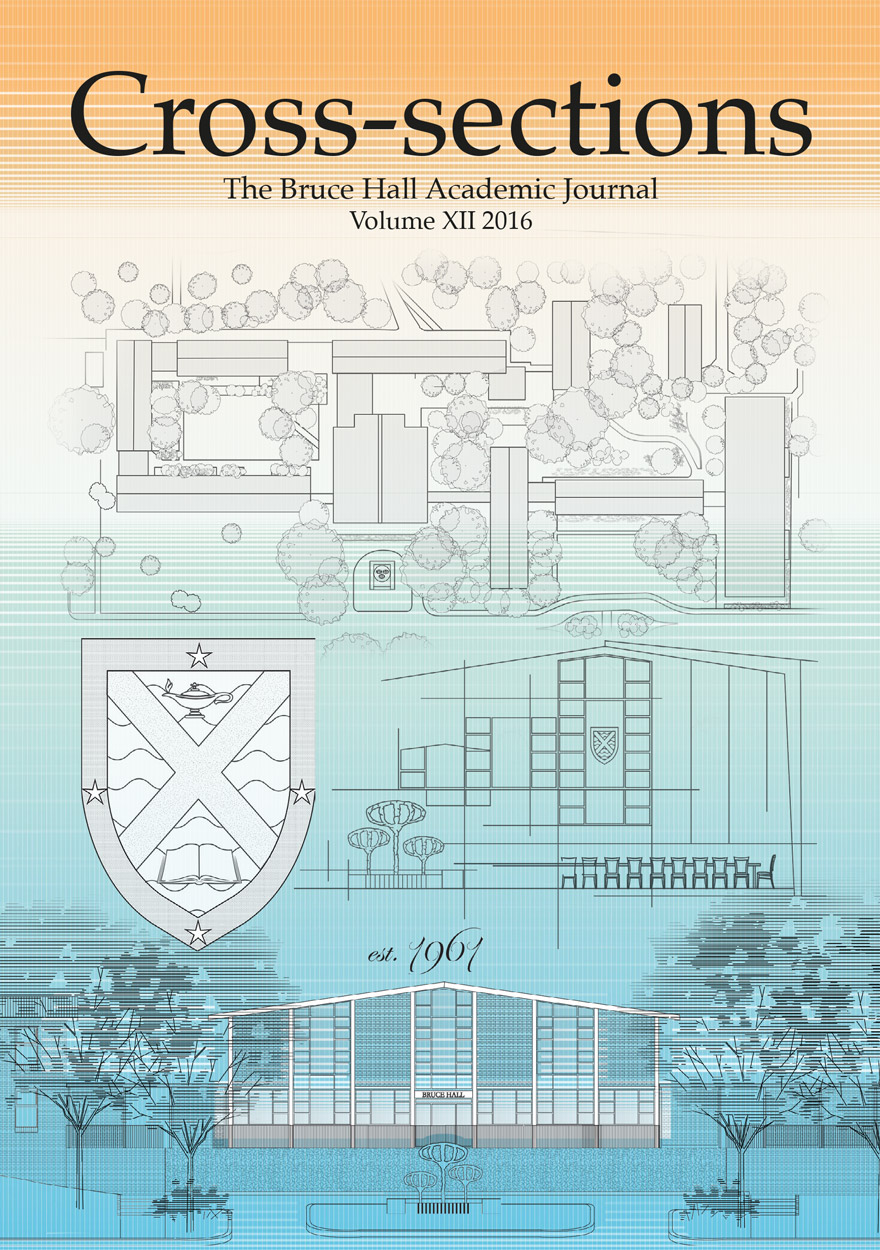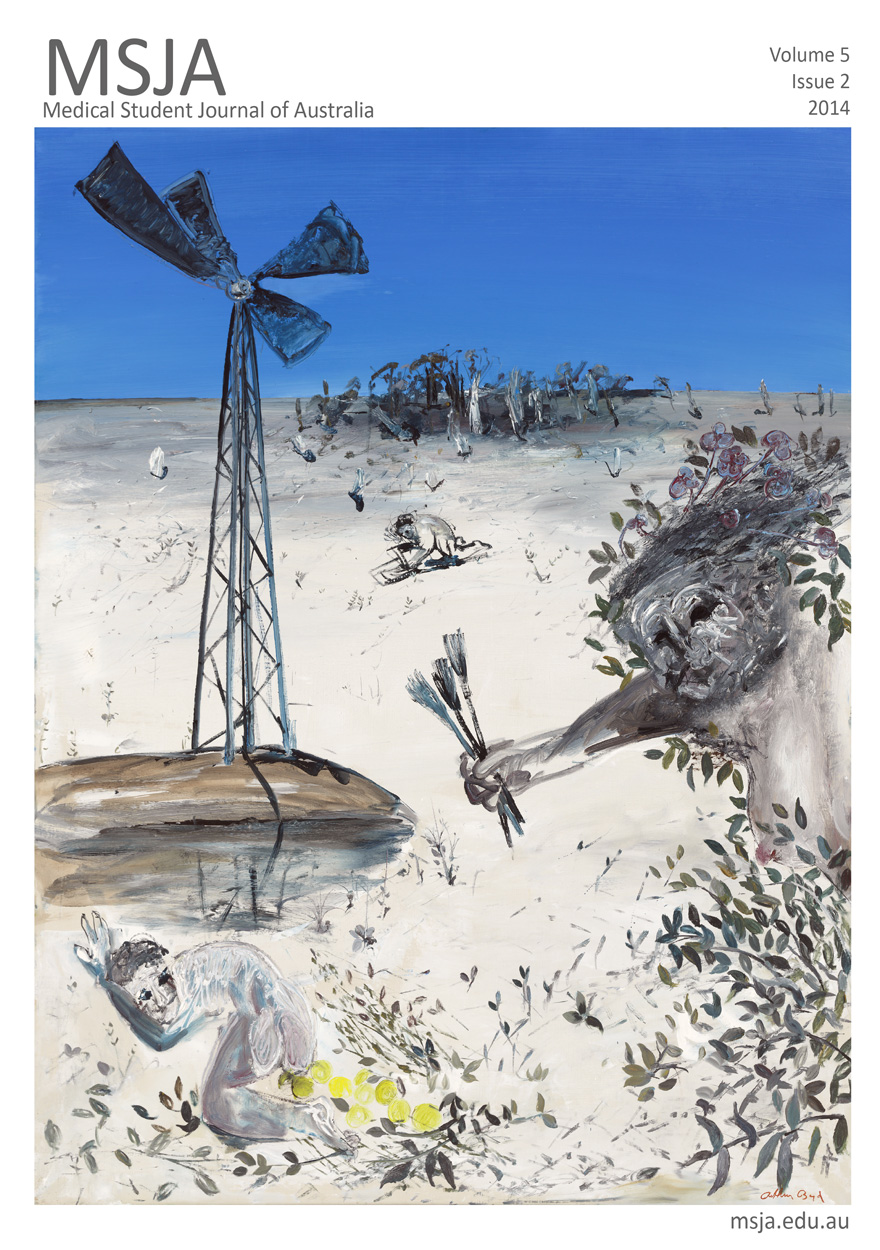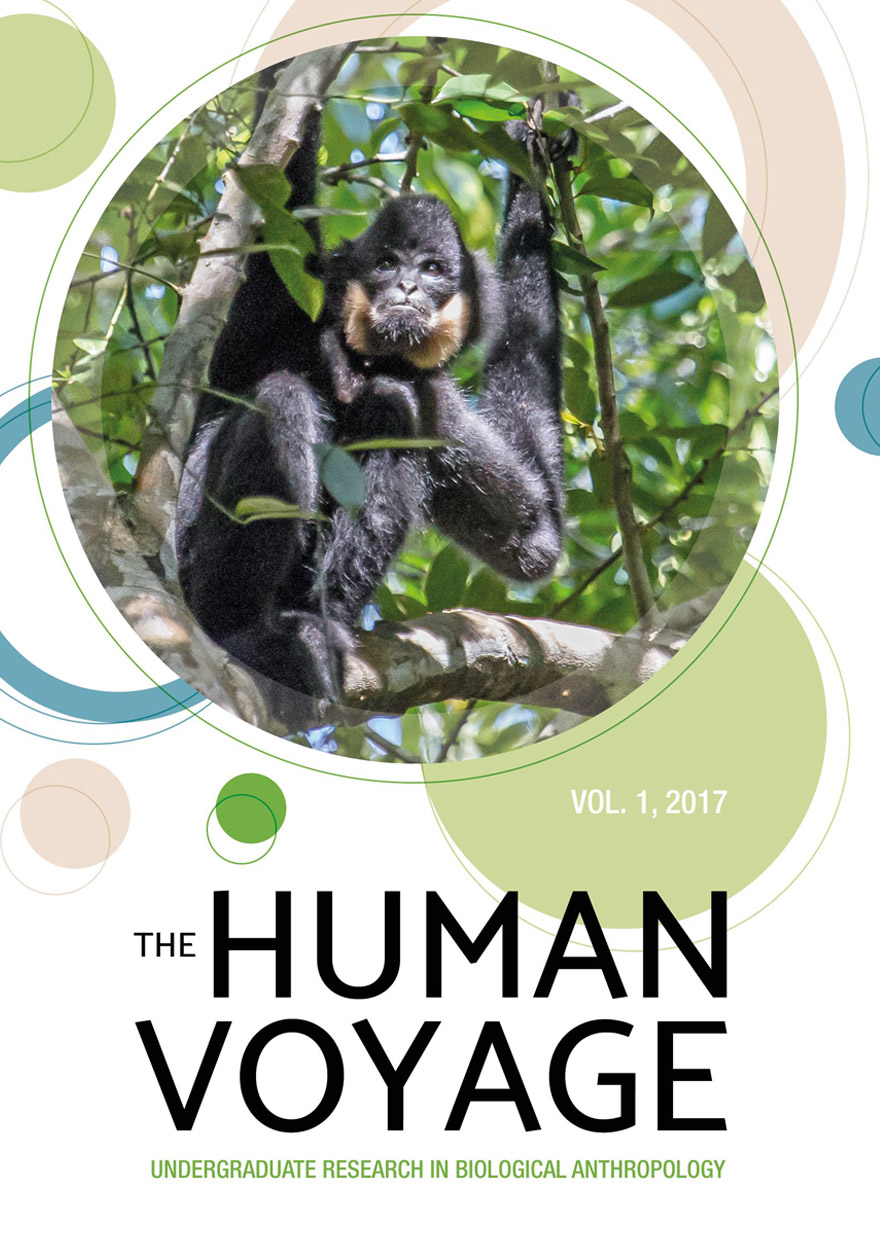Journals
Browse or search a variety of academic journals maintained by ANU Press, or find out more about the journal authors. Download the book for free or buy a print-on-demand copy.
Cameron Scott Mitchell »
Cameron Mitchell has a career background in Defence Intelligence. He has worked on a range of Defence related strategic issues, and deployed to Iraq as a Senior Intelligence Officer working in the Combined Intelligence Operation Centre in 2007. He holds an honours degree in history from the University of Sydney, and graduated with a Masters degree by research from the University of New South Wales. His academic focus includes Russian and Chinese military modernisation and defence reform. He has been published in Strategic Comments, through the International Institute for Strategic Studies.
Matthew Allen »
Matthew G. Allen is a Fellow in the State, Society and Governance in Melanesia Program at The Australian National University.
Brian Kennett »
Brian Kennett is currently Distinguished Professor of Seismology at the Research School of Earth Sciences, The Australian National University and was Director from September 2006 to January 2010. He received his Ph.D. in Theoretical Seismology from the University of Cambridge in 1973. He was a Lindemann Fellow at IGPP, University of California, San Diego and then a University Lecturer at the University of Cambridge. He moved to Australia in 1984, and was President of IASPEI from 1999-2003.
His research has covered a very wide range of topics in seismology, from reflection seismology to studies of the deep Earth and from theoretical to observational studies. He has received recognition through many medals and awards including the Gold Medal in Geophysics from the Royal Astronomical Society, the Gutenberg Medal from the European Geosciences Union, the Murchison Medal from the Geological Society of London, and the Jaeger and Flinders Medals from the Australian Academy of Sciences. He is a Fellow of the Australian Academy of Sciences and the Royal Society (London).
Jack Corbett »
Jack Corbett is Associate Professor in Politics at the University of Southampton; Honorary Associate Professor at the Coral Bell School of Asia Pacific Affairs, The Australian National University; and Adjunct Senior Research Fellow at the Centre for Governance and Public Policy, Griffith University. He is the author of Being Political: Leadership and Democracy in the Pacific Islands (2015), Australia’s Foreign Aid Dilemma: Humanitarian Aspirations Confront Democratic Legitimacy (2017), and co-editor with Brij V. Lal of Political Life Writing in the Pacific: Reflections on Practice (2015).
Keith Woodward »
Keith Woodward was born in Ismailia, Egypt in 1930. He was educated at Probus School, Plymouth College and Keble College, Oxford, graduating in Modern History in 1951. In 1953 he joined the British National Service in the New Hebrides as office assistant, was promoted to be Assistant Secretary in 1957, and Administrative Officer, Class A in 1970. Woodward dealt with a wide variety of administrative matters during his twenty-five years at the British Residency, including Condominium Personnel, Agriculture, District Affairs, Land, Education, Health and Constitutional Development, holding the post of Secretary for Political Affairs from 1968, until his retirement (because of failing eyesight) in 1978. He had a major part in setting up the Port Vila Cultural Centre (1961–62), and was Hon. Secretary to the Board of Management for sixteen years. He was also much involved with the introduction of Scouting (under the aegis of the British Commonwealth Scouting Movement), serving from 1956 as secretary to the Scout Council and later as Chairman. Woodward was awarded the MBE in 1964, the OBE in 1976 and the Vanuatu Independence Medal in 1980. Keith lives in retirement in Bath.
Sheryn Lee »
Sheryn Lee is a doctoral candidate at the Strategic and Defence Studies Centre, The Australian National University, and a non-resident WSD Handa Fellow at Pacific Forum, Center for Strategic and International Studies (CSIS), Honolulu. She holds an AM in Political Science from the University of Pennsylvania, where she was a Benjamin Franklin Fellow and Mumford Fellow. Previously, she has been a researcher, tutor, and TB Millar scholar at the SDSC, and Robert O’Neill scholar at the International Institute of Strategic Studies-Asia in Singapore. She has previously published in Asian Security and Survival, and co-edited Insurgent Intellectual: Essays in Honour of Professor Desmond Ball (with Brendan Taylor and Nicholas Farrelly).
Yongjin Zhang »
Yongjia Zhang is Fellow in the Department of International Relations, Research School of Pacific and Asian Studies at The Australian National University. His publications include China in International Society since 1949—Alienation and beyond (1998) and 'System, empire and state in Chinese international relations', Review of International Studies (2001).
Greg Austin »
Greg Austin is Director of Research for the Brussels-based International Crisis Group. He has worked in other professional and academic posts in Canberra, Hong Kong and Washington. He is co-author of Japan and Greater China: Political economy and military power in the Asian century (with Stuart Harris, 2001); and Red Star East: The armed forces of Russia in Asia (with Alexey Muraviev, 2000); and author of China's Ocean Frontier: International law, military force and national development ( 1998).
Alex Millmow »
Before entering academia, Alex was an officer within the Federal Treasury. He is the founder and co-editor of the Journal of Economic and Social Policy. He has written opinion pieces for the Australian media, most particularly The Canberra Times, the Australian Financial Review and The Age. During the 1990s he wrote a series of papers highlighting the alarming fall in student numbers enrolling in economic degrees within Australia. One of his research interests is the sociology of the Australian economics profession and the contribution the profession makes to society.
Alex’s other research interests include the economics of Joan Robinson, the history of Australian economic though as expressed through its fine tradition of applied economists and the role of economic ideas in steering public policy. In 2004 he completed his doctorate at The Australian National University on “The power of economic ideas: the rise of macroeconomic management in Australia 1929-1939″. He is the current President of the History of Economic Thought Society of Australia (HETSA), member of the Editorial Board of Australian Universities Review and a council member of the Victorian Branch of the Economic Society of Australia. He is currently writing a biography of the Anglo-Australian economist Colin Clark.
Richard Lucas »
Dr Richard Lucas spent 17 years as an IT professional in both the public and private sectors. He has been in the tertiary sector for the past 22 years. He is the Head of Discipline for Information Systems at the University of Canberra and an Adjunct Senior Research Fellow at the Centre for Applied Philosophy and Public Ethics.
John Weckert »
John Weckert is a Professorial Fellow at the Centre of Applied Philosophy and Public Ethics and Professor of Computer Ethics, Charles Sturt University. He is the founding Editor-in-Chief of the Springer journal Nanoethics: Ethics for Technologies that Converge at the Nanoscale.
Sue Feary »
Sue Feary is an archaeologist with more than 30 years experience in managing cultural and natural heritage and working with Indigenous Australians. From the mid-1980s she was employed by the then NSW National Parks and Wildlife Service as a cultural heritage manager responsible for providing specialist advice on conservation of Aboriginal and historic heritage in southeastern Australia.
Sue was the first chair of a cultural heritage working group, one of several working groups established under the 1986 Memorandum of Understanding for cooperative management of national parks in the Australian Alps, stretching across NSW, Victoria and ACT. She assisted in organising a major conference on the cultural heritage of the Australian Alps held in 1991.
In 1994, Sue was seconded to the then Australian Heritage Commission to be part of a team investigating the social and cultural values of native forests to local communities in Victoria and Western Australia. On returning to NPWS Sue became a field based Area Manager on the NSW south coast responsible for managing the newly declared marine and national parks at Jervis Bay as well as oversighting many new protected areas in the local area, emerging from the Regional Forest Agreement process.
During her career Sue developed a particular interest in Indigenous people’s traditional and contemporary connections with the forested environment and in 2007 she completed a PhD on this topic in the Fenner School at the Australian National University. She was a member of an International Task Force on Traditional Forest Knowledge and co-edited a book on this subject.
Sue’s work experience has enabled an appreciation of both the differences and the synergies of western style nature conservation and Indigenous notions of caring for country and how it can contribute to the reconciliation process in Australia.
Currently Sue is a consultant archaeologist doing mainly heritage assessments but also large collaborative projects with an anthropologist and Aboriginal communities, such as assessing the Aboriginal values of the NSW marine environment and documenting the names and locations of the ancestors in a large historic Aboriginal cemetery.
Ashish Kothari »
Founder-member of Indian environmental group Kalpavriksh, Ashish has taught at the Indian Institute of Public Administration and as guest faculty in several universities in India and abroad.
He has coordinated India’s National Biodiversity Strategy and Action Plan process, served on boards or steering committees of several civil organisations (including Greenpeace International and India, Indian Society of Ecological Economics, World Commission on Protected Areas, IUCN Commission on Social, Economic and Environmental Policy, and Bombay Natural History Society), co-chaired IUCN WCPA-CEESP Strategic Direction on Governance, Equity and Livelihoods (TILCEPA), and helped found the ICCA Consortium.
Active in both peoples’ movements and on government committees, Ashish has initiated a process to bring together people and stories on alternatives in India, Vikalp Sangam, and networking on well-being alternatives around the world, through a Peoples’ Sustainability Treaty on Radical Ecological Democracy.
He has authored or edited (singly or with others) over 30 books, including Birds in Our Lives, Sharing Power and (with Aseem Shrivastava) Churning the Earth: The Making of Global India.
Graeme L. Worboys »
Graeme Worboys is Co Vice Chair, Connectivity Conservation and Mountains, IUCN World Commission on Protected Areas; an Adjunct Fellow at The Australian National University Fenner School of Environment and Society; and a member of the Australian Capital Territory’s Tidbinbilla Nature Reserve Strategic Management Board.
Graeme has 43 years’ national and international experience in protected area governance and management for executive (policy); practitioner (operations) and developmental theory (research) practice. He is an editor and author for five national and international books on protected area management and connectivity conservation, an author of 12 published book chapters and papers and multiple reports and articles. He was lead editor of Protected Area Principles and Practice (2001, 2005), Oxford University Press, Melbourne; co-editor of Managing Protected Areas: Challenges and Responses for the 21st Century (2004) Andromeda Editrice, Italy; co-editor of Managing Protected Areas: A Global Guide (2006) Earthscan, London; and lead editor of Connectivity Conservation Management: A Global Guide (2010) Earthscan, London.
Graeme has led IUCN World Heritage evaluations in South Africa, Italy, China and Vietnam; he has provided UNESCO with World Heritage management guidance in South Africa; the Vietnamese Government with Karst management advice; and the South Australian Government with a National Heritage Listing expert report. He has served the Australian Government as a protected area advisor to the Auditor General of Australia; Chairperson of the National Wildlife Corridor Committee; and commissioned expert report contributor to World Heritage and geoheritage conservation policy.
Michael Lockwood »
Michael Lockwood is Associate Professor of Environmental Planning and Management, Geography & Spatial Science, School of Land and Food at the University of Tasmania.
Michael has been an author on 4 books and over 100 academic papers, book chapters and reports. His most recent articles in Journal of Environmental Management, Journal of Environmental Planning and Management and Ecology and Society show how social ecological systems and scenario analyses can improve biodiversity governance and planning. Other recent work has examined the forms and sources of place attachment for protected areas (published in Geoforum and Journal of Environmental Planning and Management), and analysed social survey data to underpin program design for connectivity conservation (published in Society and Natural Resources). His books include a co-authored 2010 volume, Connectivity conservation management: a global guide, published by Earthscan, London. He has also written articles on protected area governance, regional natural resource management, and natural area values assessment.
Michael is a member of the IUCN World Commission on Protected Areas, member of the Planning Institute of Australia, a Ministerial appointee to the Tasmanian National Parks and Wildlife Advisory Council, and Committee Chair and Steering Group member for a protected areas research and learning collaboration servicing the Asia-Pacific and Australia.
Ian Pulsford »
Ian Pulsford is a specialist in protected areas and linking landscapes with 36 years experience in conservation policy, planning and practice with the New South Wales Government, including the selection, design and management of protected areas and large landscape connectivity corridors.
Ian has been an author of more than 18 published articles and book chapters. He has been an editor of two books and authored numerous government and consultancy reports, conservation plans, strategies and publicity materials. Ian’s most recent contributions as a chapter author and editor is Linking Australia’s Landscapes published by CSIRO in 2010 which draws out lessons from a variety of established and new connectivity conservation initiatives from around Australia, and is complemented by international examples. In this book he co-authored a chapter on Connectivity Conservation in the Great Eastern Ranges of Australia.
During the 1990s and later Ian was the Zone and Divisional Manager for Conservation Programs in south-east NSW with the National Parks and Wildlife Service and Department of Environment Climate Change and Water (now the Office of Environment and Heritage) and from 2007 to 2010 was the founding manager of the Great Eastern Ranges Initiative, Australia’s first continental-scale conservation corridor. He is now an independent consultant and member of the IUCN World Commission on Protected Areas – Mountains and Connectivity Conservation theme. Ian has served on various government committees, including as a member of an expert panel advising the Australian Government on the draft National Wildlife Corridors Plan, a Ministerial appointee on the Southern Catchment Management Board and has chaired several committees.
Mark Busse »
Mark Busse is Senior Lecturer in Social Anthropology at the University of Auckland. His research concerns social organization, reciprocity and markets, intellectual and cultural property, and inequality with a geographical focus on Papua New Guinea. He has carried out long-term ethnographic research among Boazi-speaking peoples in the Lake Murray-Middle Fly area of Papua New Guinea since 1982. That research has focused on dual organization, sister exchange marriage, gender and inequality, history, and regional integration. Before moving to New Zealand in 1999, Mark worked for nine years at the Papua New Guinea National Museum first as Curator of Anthropology and then as Assistant Director for Science, Research and Consultancy. His current research, which is funded by the Royal Society of New Zealand, concerns the fresh food market in Goroka in the Eastern Highlands Province of Papua New Guinea. It addresses issues of urban food security through an examination of the market as a set of complex social relations and from the perspectives of the diverse participants in the market rather than through the application of Western economic models. He is co-editor of Protection of Intellectual, Biological and Cultural Property in Papua New Guinea with Kathy Whimp (published by ANU Press) and Ownership and Appropriation with Veronica Strang (published by Berg).
John Uhr »
Professor John Uhr, author of Terms of Trust and of Deliberative Democracy in Australia, is inaugural Director of the Centre for the Study of Australian Politics, School of Politics and International Relations at The Australian National University.
David Eng »
David Eng is a Lecturer in Philosophy at Victoria University of Wellington. Previously he was an Assistant Professor at California State University Bakersfield for three years. When he moved to New Zealand in 2003, he worked for the Tertiary Educational Commission up until 2007. His areas of research include Epistemology, Social Epistemology, Philosophy of Mind, Aesthetics, and Philosophy of Evaluation.
Ahmad Kusworo »
Ahmad Kusworo received his first degree in agriculture from the University of Lampung and conducted research in the province with Friends of Nature and Environment (WATALA) and World Agroforestry Centre (ICRAF) before beginning his degree program at ANU. Since completing his PhD, Ahmad Kusworo has worked for World Wildlife Fund (WWF) Indonesia and UNDP Indonesia as well as having served as the Indonesian Research Coordinator for the ANU Crawford School’s Australia Indonesia Governance Research Partnership. He is currently a Technical Advisor for Fauna & Flora International’s Indonesia Programme.
Gordon Briscoe »
BA (Hist), MA, PhD Dr Gordon Briscoe, from the Marduntjara/Pitjantjatjara peoples of Central Australia, is a long-standing Indigenous activist, organiser, researcher, writer, teacher and mentor. He played a key role in inspiring ANU History Program to establish its Centre for Indigenous History and became the Centre’s inaugural Research Fellow in 2003. In 2004 he was awarded the Order of Australia for services to Aboriginal health, legal services and education. Dr Briscoe helped form an Aboriginal Progress Association in the late 1950s. He worked for the Foundation for Aboriginal Affairs and the Aboriginal Legal Service (a body he had helped to establish) in the late 1960s. In 1972, he helped establish a health service for the growing urban Aboriginal population in Sydney. He was also a Field Officer for the Commonwealth Office of Aboriginal Affairs and a senior liaison officer in the Department of Health and Acting Director of Professor Fred Hollows National Trachoma and Eye Health Program, where he advised on cultural protocols for approaching Aboriginal communities. Dr Briscoe began his academic career in 1981, studying history and politics at ANU. He gained his PhD on Indigenous health in the RSSS History Program in 1997. His current research projects include the Sydney Harbour Trust project, the ‘Native Census, 1920-44′, an Indigenous population study, and ‘Aborigines Between The Wars: 1920-1944’.
Christina Parolin »
Dr Christina Parolin researches in the field of early nineteenth century British radicalism. In 2009, she was awarded the J. G. Crawford Prize for her study, Radical Spaces, which explores the connection between architecture and space and popular radical culture in early 19th century London. During 2010-11 she held a Visiting Fellowship at the Humanities Research Centre, The Australian National University. Christina is currently the Executive Director of the Australian Academy of the Humanities.
Her publications include: ‘The ‘She-Champion of Impiety’: a case study of female radicalism’ in M.T Davis and Paul. A Pickering (eds), Unrespectable Radicals? Popular Politics in the Age of Reform, Ashgate, 2008; ‘Let us have truth and liberty’: contesting Britishness and Otherness from the prison cell, London 1820-26’, Humanities Research, vol xiii, no.1 2006, pp.71-84; and Michael Davis, Iain McCalman, Christina Parolin (eds) Newgate in Revolution: An anthology of Radical Prison Literature in the Age of Revolution, Continuum Press, London, 2005. Her latest publication is Radical Spaces: Venues of Popular Politics in London 1790-c.1845, ANU Press, 2010.
Porer Nombo »
Porer Nombo is Local Government representative (Komiti) for the villages of Reite, Sarangama and Marpungae in Ward 16 of Mot 1 District on the Rai Coast of Papua New Guinea, a position he has been asked to occupy since the early 1980s. Growing up in the village in the 1950s and 60s, he never learned to read or write but was educated about plants and healing, among other things, by his elders, and is recognised as the leading local authority on kastom (effective modes of action from past and present). In 2000, he gave a presentation to the Motupore Island Seminar on Intellectual and Cultural Property in Port Moresby organised by the University of Papua New Guinea, and in 2009 he visited the UK at the request of the British Museum to assist them in their work.
Christopher B. Yardley »
Chris Yardley worked as a salesman in the computer industry for 46 years, during 1961–2005. His career, following every opportunity afforded, resulted in him living and working in five countries during this time. He has travelled extensively in some thirty countries. He has a real interest in the political and cultures of these countries and how it determines the salesman’s approach to doing business. Prior to retirement he undertook making a record of the computer industry in which he was working coming to the conclusion that it had been the front-line salesmen who had created the computer and communications explosion we have seen since the 1980s.
Post retirement he has undertaken a Master of Science Communication at the Australian National University and followed that with a science communication study leading to a PhD.
David McDonald »
David McDonald BA, DipSocWk, MA, GradDipPoplnHlth is a social scientist with research interests including dialogue, knowledge integration and building evidence-based public policy. He has wide experience in research & evaluation, policy analysis and policy & program development, particularly in the alcohol and other drugs, criminal justice and related fields.
David is a Visiting Fellow at ANU National Centre for Epidemiology and Population Health and the Director of the Canberra-based consultancy Social Research & Evaluation Pty Ltd. Earlier positions he has held include Senior Criminologist at the Australian Institute of Criminology, and Deputy Head of Research at the Royal Commission into Aboriginal Deaths in Custody.
ANU Press Journals
Aboriginal History Journal »
Since 1977, the journal Aboriginal History has pioneered interdisciplinary historical studies of Australian Aboriginal people’s and Torres Strait Islander’s interactions with non-Indigenous peoples. It has promoted publication of Indigenous oral traditions, biographies, languages, archival and bibliographic guides, previously unpublished manuscript accounts, critiques of current events, and research and reviews in the fields of anthropology, archaeology, sociology, linguistics, demography, law, geography and cultural, political and economic history.
Aboriginal History Inc. is a publishing organisation based in the Australian Centre for Indigenous History, Research School of Social Sciences, The Australian National University, Canberra.
For more information on Aboriginal History Inc. please visit aboriginalhistory.org.au.
Submission details
Please send article submissions to aboriginal.history@anu.edu.au.
Articles of about 7,000 words in length (including footnotes and references) are preferred, but submissions up to 9,000 words will be considered. Please submit an electronic version of the paper (text only without embedded images or scans) in Microsoft Word or RTF format, along with a short abstract and author biography as a separate document.
ANU Historical Journal II »
The ANU Historical Journal II (ANUHJ II) is an open-access, peer-reviewed academic history journal of the ANU College of Arts and Social Sciences and the ANU College of Asia and the Pacific. It is a revival of the ANU Historical Journal, which was published between 1964 and 1987. Contributors to the first journal included academics such as Ken Inglis, Manning Clark, John Ritchie and Oliver MacDonagh along with then-emerging scholars Iain McCalman, Michael McKernan, Margaret George, Coral Bell, John Iremonger, Alastair Davidson, Susan Magarey and Rosemary Auchmuty. As well as upholding the Journal’s commitment to the work of students and early career researchers, the ANUHJ II has expanded its focus to include memoirs, short articles and long-form book reviews.
The ANUHJ II invites submissions from students, graduates and academics of any Australian university.
For more information about the ANUHJ II, please visit anuhj.com.au
Australian Journal of Biography and History »
The Australian Journal of Biography and History is an initiative of the National Centre of Biography (NCB) in the Research School of Social Sciences at The Australian National University. The NCB was established in 2008 to extend the work of the Australian Dictionary of Biography and to serve as a focus for the study of life writing in Australia, supporting innovative research and writing to the highest standards in the field, nationally and internationally. The Australian Journal of Biography and History seeks to promote the study of biography in Australia. Articles that appear in the journal are lively, engaging and provocative, and are intended to appeal to the current popular and scholarly interest in biography, memoir and autobiography. They recount interesting and telling life stories and engage critically with issues and problems in historiography and life writing.
The journal publishes peer-reviewed articles on Australian historical biography, including biographical studies, studies relating to theory and methodology, and the associated genres of autobiography, life writing, memoir, collective biography and prosopography. We are especially interested in articles that explore the way in which biography and its associated genres can illuminate themes in Australian history, including women in Australian society, family history, transnational networks and mobilities, and Indigenous history.
Submission Details
Please send article submissions or abstracts to the Editor, Dr Malcolm Allbrook, National Centre of Biography, The Australian National University. Email: Malcolm.Allbrook@anu.edu.au. Articles should be in the range of 5,000 to 8,000 words (excluding footnotes), although longer submissions may be considered after consultation with the Editor. Style and referencing: please use footnotes in Chicago style, and follow British spelling.
East Asia Forum Quarterly »
East Asia Forum Quarterly grew out of East Asia Forum (EAF) online, which has developed a reputation for providing a platform for the best in Asian analysis, research and policy comment on the Asia Pacific region in world affairs. EAFQ aims to provide a further window onto research in the leading research institutes in Asia and to provide expert comment on current developments within the region. The East Asia Forum Quarterly, like East Asia Forum online, is an initiative of the East Asia Forum (EAF) and its host organisation, the East Asian Bureau of Economic Research (EABER) in the Crawford School of Public Policy in the ANU College of Asia & the Pacific at The Australian National University.
Submission details
Unsolicited submissions to EAF are welcome. An analytic op-ed piece that is accessible to a general audience and written in crisp language is required. The preferred length of submissions is around 800 words. Submissions will be double-blind reviewed and, if accepted for publication, edited for English fluency and house style before returned for clearance by the author. EAFQ does not use footnotes but would be extremely appreciative if hyperlinks to internet sources are included wherever possible. EAFQ reserves the right to determine the title for any piece, but will not publish a piece or a title without permission. A suggested title is appreciated. If you have any further queries, or would like to submit, please contact shiro.armstrong@anu.edu.au.
Human Ecology Review »
Human Ecology Review is a semi-annual journal that publishes peer-reviewed interdisciplinary research on all aspects of human–environment interactions (Research in Human Ecology). The journal also publishes essays, discussion papers, dialogue, and commentary on special topics relevant to human ecology (Human Ecology Forum), book reviews (Contemporary Human Ecology), and letters, announcements, and other items of interest (Human Ecology Bulletin). Human Ecology Review also publishes an occasional paper series in the Philosophy of Human Ecology and Social–Environmental Sustainability.
Submission details
For information on preparing your manuscript for submission, please visit www.humanecologyreview.org. To submit a manuscript to Human Ecology Review, please visit mstracker.com/submit1.php?jc=her, or email humanecologyreviewjournal@gmail.com.
Humanities Research »
Humanities Research is a peer-reviewed, open access, annual journal that promotes outstanding innovative, interdisciplinary and multidisciplinary scholarship to advance critical knowledge about the human world and society.
The journal is co-published by the Humanities Research Centre, The Australian National University, Canberra. It was launched in 1997 and went into hiatus in 2013. In 2022, the journal is resuming publication, reflecting the continuing strength of the humanities at The Australian National University, the rapid development of the interdisciplinary, environmental and public humanities over the last decade, and the opportunities for international collaboration reflected in the resumption of international travel in 2022.
Issues are thematic with guest editors and address important and timely topics across all branches of the humanities.
International Review of Environmental History »
International Review of Environmental History takes an interdisciplinary and global approach to environmental history. It encourages scholars to think big and to tackle the challenges of writing environmental histories across different methodologies, nations, and time-scales. The journal embraces interdisciplinary, comparative and transnational methods, while still recognising the importance of locality in understanding these global processes.
The journal’s goal is to be read across disciplines, not just within history. It publishes on all thematic and geographic topics of environmental history, but especially encourage articles with perspectives focused on or developed from the southern hemisphere and the ‘global south’.
Submission details
Please send article submissions or abstracts to the Editor, Associate Professor James Beattie, Science in Society, Victoria University of Wellington, PO Box 600, Wellington 6142, New Zealand. Email: james.beattie@vuw.ac.nz.
Abstracts should be no more than 200 words, and include a list of keywords. Articles should be in the range 5,000 to 8,000 words (including footnotes), although longer submissions may be considered after consultation with the editor. Style and referencing: please use footnotes in Chicago Style, follow British spelling, and use single quotation marks only. Find out more details about Chicago Style.
Lilith: A Feminist History Journal »
Lilith: A Feminist History Journal is an annual journal that publishes articles, essays and reviews in all areas of feminist and gender history (not limited to any particular region or time period). In addition to publishing research articles on diverse aspects of gender history, Lilith is also interested in publishing feminist historiographical and methodological essays (which may be shorter in length than typical research articles). Submissions from Australian and international early career researchers and postgraduate students are particularly encouraged.
The journal first began publication in Melbourne in 1984. It is the official journal of the Australian Women’s History Network, an organisation dedicated to promoting research and writing in all fields of women’s, feminist and gender history.
For more information about Lilith, please visit www.auswhn.org.au/lilith/.
Made in China Journal »
The Made in China Journal (MIC) is a publication focusing on labour, civil society and human rights in China. It is founded on the belief that spreading awareness of the complexities and nuances underpinning socioeconomic change in contemporary Chinese society is important, especially considering how in today’s globalised world Chinese labour issues have reverberations that go well beyond national borders. MIC rests on two pillars: the conviction that today, more than ever, it is necessary to bridge the gap between the scholarly community and the general public, and the related belief that open-access publishing is necessary to ethically reappropriate academic research from commercial publishers who restrict the free circulation of ideas.
Discontinued ANU Press Journals
Agenda - A Journal of Policy Analysis and Reform »
Please note: This journal ceased publishing in 2021.
Agenda is a refereed, ECONLIT-indexed and RePEc-listed journal of the College of Business and Economics, The Australian National University. Launched in 1994, Agenda provides a forum for debate on public policy, mainly (but not exclusively) in Australia and New Zealand. It deals largely with economic issues but gives space to social and legal policy and also to the moral and philosophical foundations and implications of policy.
Submission details
Authors are invited to submit articles, notes or book reviews, but are encouraged to discuss their ideas with the Editor beforehand. All manuscripts are subject to a refereeing process. Manuscripts and editorial correspondence should be emailed to: william.coleman@anu.edu.au.
Subscribe to the Agenda Alerting service if you wish to be advised on forthcoming or new issues.
Australian Humanities Review »
Please note: This journal ceased publishing with ANU Press in 2012. Current issues are available at australianhumanitiesreview.org.
Australian Humanities Review is a peer-reviewed interdisciplinary journal featuring articles, essays and reviews focusing on a wide array of topics related to literature, culture, history and politics.
craft + design enquiry »
Please note: This journal ceased publishing in 2015.
craft + design enquiry is an open-access, peer-reviewed journal promoting and disseminating research excellence generated by and about the craft and design sector. craft + design enquiry investigates the contribution that contemporary craft and design makes to society, establishing a dialogue between craft and design practice and cultural, social and environmental concerns. It includes submissions from across the field of craft and design from artists and practitioners, curators, historians, art and cultural theorists, educationalists, museum professionals, philosophers, scientists and others with a stake in the future developments of craft and design.
ANU Student Journals
ANU Undergraduate Research Journal »
Please note: This journal is now published via the ANU Student Journals platform; the latest issues can be found here: studentjournals.anu.edu.au/index.php/aurj
The ANU Undergraduate Research Journal presents outstanding essays taken from ANU undergraduate essay submissions. The breadth and depth of the articles chosen for publication by the editorial team and reviewed by leading ANU academics demonstrates the quality and research potential of the undergraduate talent being nurtured at ANU across a diverse range of fields.
Established in 2008, AURJ was designed to give students a unique opportunity to publish their undergraduate work; it is a peer-reviewed journal managed by a team of postgraduate student editors, with guidance from the staff of the Office of the Dean of Students.
Burgmann Journal - Research Debate Opinion »
Please note: This journal is now published via the ANU Student Journals platform; the latest issues can be found here: studentjournals.anu.edu.au/index.php/burgmann
Burgmann Journal is an interdisciplinary, peer-reviewed publication of collected works of research, debate and opinion from residents and alumni of Burgmann College designed to engage and stimulate the wider community.
Cross-sections, The Bruce Hall Academic Journal »
Please note: This journal is now published via the ANU Student Journals platform; the latest issues can be found here: studentjournals.anu.edu.au/index.php/cs
Representing the combined energies of a large group of authors, editors, artists and researchers associated with Bruce Hall at the ANU, Cross-sections collects a range of works (from academic articles and essays to photography, digital art and installation artwork) that represents the disciplinary breadth and artistic vitality of the ANU.
Presenting a challenging and absorbing way for students to hone vital research skills, in the process, Cross-sections nurtures a fruitful environment of collaborative interaction between academics and students.
Medical Student Journal of Australia »
Please note: This journal ceased publishing in 2015.
The Medical Student Journal of Australia provides the medical school of The Australian National University with a platform for medical students to publish their work in a peer-reviewed journal, communicating the results of medical and health research information clearly, accurately and with appropriate discussion of any limitations or potential bias.
Merici - Ursula Hall Academic Journal »
Please note: This journal is currently not publishing any new issues.
Merici is the combined works of undergraduate authors at Ursula Hall. Merici contains research and analysis from a range of disciplines and is thoroughly reviewed by ANU academics to ensure the showcasing of the best Ursula Hall has to offer.
The Human Voyage: Undergraduate Research in Biological Anthropology »
Please note: This journal is now published via the ANU Student Journals platform; the latest issues can be found here: studentjournals.anu.edu.au/index.php/hv
The Human Voyage: Undergraduate Research in Biological Anthropology is a journal that publishes outstanding student articles in all areas of biological anthropology, including primatology, palaeoanthropology, bioarchaeology and human behavioural ecology.
While the primary goal of this journal is to publish work of the highest quality authored by undergraduate students, it will also educate students in regards to publishing in academia. All submissions will be peer-reviewed and edited by ANU academic staff.




